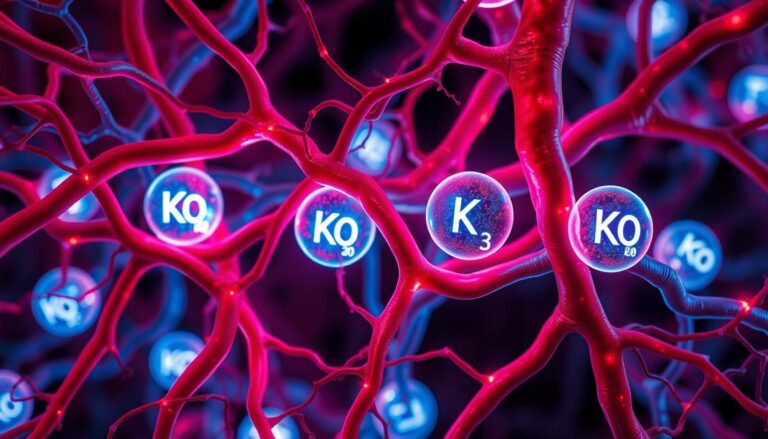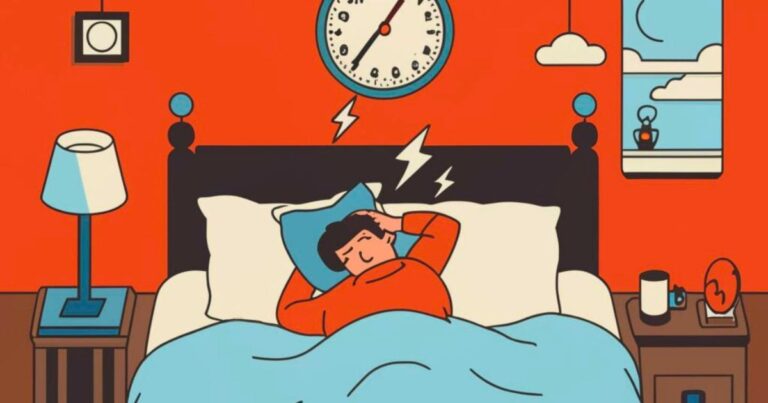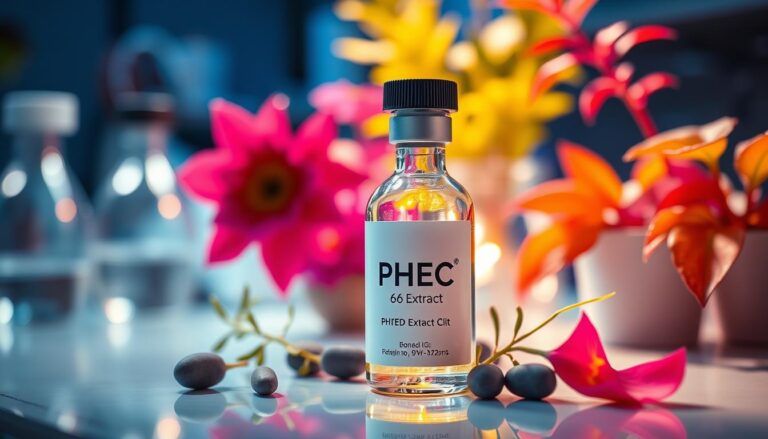Have you ever wondered why hibiscus tea is so popular? It’s not just its bright red color that draws people in.
This tea made from the Hibiscus sabdariffa plant, is packed with health benefits. It’s full of antioxidants and can help with blood pressure cholesterol and even weight.
Key Takeaways
- Hibiscus tea is rich in antioxidants potentially helping to combat free radicals and reduce oxidative stress.
- Studies suggest hibiscus tea may help lower both systolic and diastolic blood pressure levels.
- Hibiscus tea may improve blood fat levels including reducing LDL bad cholesterol and triglycerides.
- Compounds in hibiscus tea have shown potential anti-cancer properties inhibiting the growth and spread of certain cancer cells.
- Hibiscus tea may aid in weight loss by inhibiting the production of amylase and assisting in fat reduction.
What are the Main Benefits of Hibiscus Tea?
Hibiscus tea is made from the red petals of the hibiscus plant. It’s full of antioxidants and tastes tart and refreshing. Drinking it can naturally boost your health. Let’s look at the main benefits of adding hibiscus tea to your day.
Antioxidant-Rich
Hibiscus tea is loaded with antioxidants like vitamin C and polyphenols. These help protect your cells from damage. Studies show it has more antioxidants than green tea.
May Help Lower Blood Pressure
Drinking hibiscus tea might lower your blood pressure. A study found that three cups a day can help adults at risk of high blood pressure.
Potential to Improve Blood Fat Levels
Hibiscus tea could also improve your blood fat levels. Research showed that drinking it twice a day for 15 days increased HDL (“good”) cholesterol in people with high cholesterol.
Supports Liver Health
New studies suggest hibiscus extract may protect the liver. It could help those with fatty liver disease or other liver issues.
Could Aid Weight Loss
Drinking hibiscus tea might help with weight loss. A study found it helped people lose body weight and belly fat over three months.
Antibacterial Properties
Hibiscus tea has antibacterial properties. It can stop harmful bacteria like E. coli from growing. This makes it a great addition to your health routine.
Hibiscus tea is full of antioxidants and has many health benefits. It can help with blood pressure, cholesterol, liver health, and weight management. Adding it to your daily routine can be a simple way to improve your health.
Rich in Antioxidants
Hibiscus tea is packed with antioxidants. These compounds like polyphenols and anthocyanins protect our cells from harm. Drinking it can boost our antioxidant levels in just an hour.
The antioxidants in hibiscus tea are great for our health. They can lower inflammation and improve insulin sensitivity. This helps keep our bodies healthy.
Hibiscus tea’s antioxidants do more than just protect our cells. They may also help lower blood pressure and cholesterol. Hibiscus tea is a true nutritional powerhouse packed with a wide range of antioxidants that can help safeguard our cells and promote overall well-being.
Even nine servings of fruits and vegetables a day may not reach the minimum recommended intake of antioxidants if one doesn’t make the right choices. Hibiscus tea contains several antioxidants, including vitamin C carotenoids, and anthocyanins that protect cells from illness.
Antioxidants in Hibiscus Tea
- Hibiscus tea is high in antioxidants including beneficial polyphenols.
- The tea plant concentrates aluminum from the soil into tea leaves but the phytonutrients in the tea bind to the metal and limit its absorption.
- Hibiscus tea is extremely high in Vitamin C which is important for tissue repair and wound healing.
- Studies have shown that the antioxidants in hibiscus tea can help lower blood pressure and reduce LDL cholesterol levels.
- Consuming hibiscus tea may also help prevent certain types of cancer by reducing inflammation and protecting cells.
May Lower Blood Pressure
Hibiscus tea is known for its ability to lower blood pressure. Studies have shown it can reduce both systolic and diastolic blood pressure levels.
A 2015 review of five studies found hibiscus tea lowers systolic blood pressure by 7.58 mmHg. It also lowers diastolic blood pressure by 3.53 mmHg. This makes it a natural option for healthy blood pressure. But those on blood pressure medication should talk to their doctor first.
In 2020, a review of seven trials found hibiscus tea significantly lowers blood pressure. It concluded hibiscus tea could be a good addition to managing high blood pressure.
Hibiscus tea may be a natural way to support healthy blood pressure. But those on blood pressure medication should talk to their doctor before adding it to their routine.
Several studies suggest that hibiscus tea may help lower both systolic and diastolic blood pressure levels.
Potential to Improve Blood Fat Levels
Research shows that hibiscus tea might help lower bad LDL cholesterol and triglycerides. A 2009 study found that people with diabetes who drank hibiscus tea had better good HDL cholesterol. They also had lower total cholesterol LDL cholesterol, and triglycerides than those who drank black tea.
Another study found that taking 100 mg of hibiscus extract daily helped people with metabolic syndrome. It increased HDL cholesterol and lowered total cholesterol. But not all studies agree on the benefits of hibiscus tea for cholesterol and triglycerides. More research is needed especially in the general population.
The benefits of hibiscus tea on cholesterol and triglycerides might come from its antioxidants. Polyphenols like anthocyanins help regulate lipid metabolism and reduce inflammation. This can lead to better blood fat levels.
| Study | Findings |
|---|---|
| Gurrola Díaz et al. 2010 | Hibiscus sabdariffa extract powder and preventive treatment diet had positive effects on the lipid profiles of patients with metabolic syndrome. |
| Boushehri et al. 2020 | Sour tea Hibiscus sabdariffa L. was effective in improving selected cardiovascular disease risk factors. |
| Abubakar et al. 2019 | Acute consumption of Hibiscus Sabdariffa calyces improved postprandial blood pressure, vascular function blood lipids biomarkers of insulin resistance, and inflammation in humans. |
While the evidence is promising more research is needed. More robust clinical trials are required to fully understand hibiscus tea’s impact on cholesterol and triglyceride levels. Those concerned about their blood fat levels might consider adding hibiscus tea to their diet. However, it’s best to consult with a healthcare provider for personalized advice.
May Boost Liver Health
Research shows hibiscus tea might help the liver. A small study found hibiscus extract improved liver fat buildup in overweight people after 12 weeks. Hibiscus tea liver health looks promising as animal studies also show liver protection.
These studies used hibiscus extract, not the tea itself. But the findings suggest hibiscus tea fatty liver benefits are worth exploring. Hibiscus’s antioxidants may reduce liver fat and stress, supporting liver function.
| Liver Health Benefit | Findings |
|---|---|
| Reduces Liver Steatosis | A study found hibiscus extract improved liver fat buildup in people with overweight over 12 weeks. |
| Decreases Liver Damage | Animal studies have shown hibiscus extract can help lower markers of liver injury and improve fatty liver disease. |
More research is needed, but the signs are good. Adding hibiscus tea to a healthy lifestyle might support liver health.

Could Aid Weight Loss
Many studies show that hibiscus tea might help with weight loss and fight obesity. In one study people who were overweight drank hibiscus extract for 12 weeks. They lost weight body fat and body mass index compared to those who took a placebo.
Animal studies also found that hibiscus extract can reduce body weight and appetite. It stops fat cells from growing. The tea has compounds that help manage fat cells and boost metabolism.
But, hibiscus tea doesn’t reduce hunger. To lose weight especially for those with big appetites mixing it with plants like Caralluma fimbriata or fenugreek is suggested. Drinking 3 to 4 cups of hibiscus tea daily before meals without sugar is recommended. This should be done with a balanced diet and exercise.
| Hibiscus Tea Preparation | Recommended Dosage | Potential Side Effects |
|---|---|---|
| The correct proportion for making hibiscus tea includes 2 tablespoons of dry hibiscus or 2 hibiscus tea bags per 1 liter of water just beginning to boil. | The maximum daily dose recommended is 2 to 3 grams or about 6 cups of tea. | Excessive consumption can lead to an overdose, changes in blood pressure, and muscle weakness. Possible side effects include excess gas increased urine volume stomach pain constipation, and low blood pressure. |
Hibiscus tea is not safe for pregnant women, women during PMS or those with low blood pressure. It can affect hormone levels and fertility. But, it can be used in recipes like watermelon hibiscus popsicles and healthy hibiscus soda.
While the results are encouraging, more research is needed. But the current evidence suggests that hibiscus tea could be part of a healthy lifestyle for weight management.
Contains Compounds with Anticancer Properties
Hibiscus, the vibrant flower in our favorite tea is more than just a tasty drink. It’s packed with compounds that might fight cancer. Studies show hibiscus extract can slow down and reduce cancer cell growth in several types of cancer.
The secret is in hibiscus’s powerful polyphenols. These are strong antioxidants and anti-inflammatory agents. They’ve been studied for stopping cancer cells from growing and spreading. But these studies used hibiscus extract, not the tea itself. More research is needed to see how hibiscus tea might affect cancer in people.
Hibiscus and Breast Cancer
Breast cancer is a big problem for women worldwide. It’s the most common cancer and causes a lot of deaths. Hibiscus might be especially good against a tough type of breast cancer called triple-negative.
Studies show hibiscus extract can make cancer cells die in both triple-negative and estrogen receptor positive breast cancer cells. It also makes chemotherapy work better in triple negative breast cancer cells.
This means hibiscus tea might help fight breast cancer. It might even protect healthy cells. More research is needed but it’s looking promising.

Read more: GLP-1 Drugs and Cancer Risk
Hibiscus extract was able to selectively induce apoptosis in both triple negative and estrogen receptor positive breast cancer cells in a dosage dependent manner.
Hibiscus tea might also help with other cancers like mouth prostate stomach and skin cancers. Its antioxidants and anti-inflammatory compounds seem to slow down cancer cell growth.
While the research on hibiscus tea is exciting, it’s mostly from lab studies. We need bigger studies on people to know how it really works. But the early signs are good. Drinking hibiscus tea might be a natural way to help your health and maybe even lower cancer risk.
May Decrease Bacterial Growth
Hibiscus tea shows promise in fighting bacteria in lab tests. It might slow down harmful bacteria like E. coli. One study found hibiscus extract works against eight types of bacteria as well as some medicines.
The tea’s power against bacteria comes from its antioxidants. These compounds can damage bacterial cell walls. This makes it hard for bacteria to survive.
- A study by Frank et al. 2005 showed hibiscus extract changes how the body handles certain compounds. This might help fight bacteria.
- Hibiscus tea can fight off harmful bacteria. It helps with E. coli infections that cause bloating, cramps, and diarrhea.
While lab results are encouraging, more research is needed. No human studies have looked at hibiscus tea’s effects on bacterial infections. So its real-world benefits are still a mystery.
Still, the evidence suggests hibiscus tea’s antioxidants could slow down harmful bacteria. But we need more research to fully grasp its antibacterial powers.
Delicious and Easy to Prepare
Hibiscus tea is not just good for you it’s also tasty and simple to make. Its tart taste, similar to cranberries is great hot or cold. This makes it perfect for any time of day.
To make hibiscus tea at home, just put dried hibiscus flowers in a teapot. Pour boiling water over them. Let it steep for 5-7 minutes, then strain and add sugar if you like. The tea’s bright red color and fresh smell make it a treat to drink.
If you like iced tea, hibiscus tea is a great pick. Its tartness goes well with honey lime or other fruits and herbs. You can adjust the flavor to your liking making a refreshing drink.
Enjoying hibiscus tea hot or cold is easy and fun. It’s a great way to add a healthy drink to your daily routine.

Potential Risks and Interactions
Hibiscus tea is usually safe but there are some things to watch out for. It might affect how certain medicines work like pain relievers, diuretics and birth control. If you’re taking these talk to your doctor before drinking hibiscus tea.
Also, hibiscus tea’s safety during pregnancy is not fully known. It has substances that could change hormone levels. Animal studies have shown it might harm the liver, but its effects on humans are still a mystery.
Potential Side Effects and Interactions
- Hibiscus tea may cause a drop in blood pressure dermatitis headache nausea and ringing in the ear.
- People with low or high blood pressure should be careful with hibiscus tea.
- Hibiscus tea can interact with some drugs like anti-malaria meds diabetes meds, and blood pressure meds.
Always be careful with herbal products and talk to a doctor especially if you have health issues or take medicine. The hibiscus tea risks and hibiscus tea interactions need to be thought about before adding it to your diet.
The FDA treats dietary supplements differently than medicines. This means supplements don’t have to prove they’re safe and work before they hit the market. So the quality and what’s in hibiscus tea supplements can vary, and the best amounts to take are not set.
Nutritional Profile
Hibiscus tea is naturally caffeine-free and packed with good stuff. An 8-ounce serving has small amounts of minerals like calcium, magnesium, phosphorus, and potassium. It’s also a great source of vitamin C giving you about 10% of what you need in one cup.
This tea is rich in antioxidants, thanks to its red color. These compounds, like anthocyanins, might help protect your cells and lower disease risk.
The hibiscus tea nutrition profile is impressive. It’s loaded with vitamin C, offering about 10% of your daily needs in just one cup. It also has calcium, magnesium, phosphorus, and potassium.
But that’s not all. Hibiscus tea is also full of antioxidants, including anthocyanins. These give the tea its bright red color and might help protect your cells and lower disease risk.
| Nutrient | Amount per 8 oz Serving |
|---|---|
| Calories | 46 |
| Total Carbohydrates | 12g |
| Dietary Fiber | 2g |
| Vitamin C | 10% of RDI |
| Calcium | 3% of RDI |
| Magnesium | 2% of RDI |
| Phosphorus | 2% of RDI |
| Potassium | 2% of RDI |
The vibrant color and antioxidant rich profile of hibiscus tea make it a nutritious and refreshing choice. Enjoy it hot or cold for a range of health benefits backed by science.

Read more: Antioxidant Foods Nourish Your Body Naturally
Conclusion
Hibiscus tea is a natural drink that can help your health. It has antioxidants and might lower blood pressure and cholesterol. It could also help with liver health and weight.
More studies are needed to confirm these benefits. But, the early signs are promising. Adding hibiscus tea to your daily routine might boost your wellbeing.
But there are risks and interactions to watch out for. Especially if you have health issues or take medicines. Always talk to a doctor before trying hibiscus tea.
Knowing the benefits and risks of hibiscus tea helps you decide. It’s a tasty way to support your health goals.
In short, hibiscus tea is good for you. It has antioxidants and might help with blood pressure, cholesterol, and weight. With doctor advice, it’s a great choice for a healthy life.





